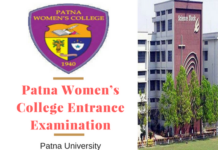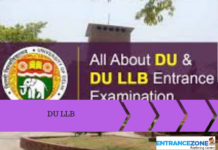Astronomy and Astrophysics course are courses that are the study of objects and phenomena that are found beyond our earth’s atmosphere. Astronomy and astrophysics combine theoretical simulations and observation with terrestrial and spacecraft-borne instruments of electromagnetic radiation and the high-energy particles emitted by the celestial bodies. Candidates having an interest in stars, moon, planets, comets etc can choose the course in this field. Candidates may read the whole article for complete information about the Astronomy and Astrophysics course.
Admission Open 2023
- Top University & Colleges Official Links, Application & Scholarship Forms.
- The number of universities offering Astronomy and Astrophysics courses is increasing.
- The demand for graduates with degrees in Astronomy and Astrophysics is also increasing.
- The field of Astronomy and Astrophysics is becoming increasingly interdisciplinary, with courses now offered in conjunction with other fields such as physics, mathematics, and computer science.
- There are a number of new research opportunities in Astronomy and Astrophysics, such as the study of exoplanets and the search for dark matter.
- The discovery of exoplanets has revolutionized our understanding of the universe.
- The search for dark matter is one of the most pressing questions in modern physics.
- The development of new telescopes and instruments is enabling astronomers to study the universe in unprecedented detail.
What is Astronomy?
Contains
Astronomy is a branch of science which deals with the study of celestial objects such as planets, stars, moon, comets, gas, galaxies and other nonearth objects. In simple words, it is the study of stars, planets and space. Historically, it has focused on the observations of the heavenly bodies. It is the oldest science in our history. Astronomy is further divided into several branches such as Astrophysics, Astrometeorology, Astrobiology, Astrogeology and Astronomy.
Subscribe to Get Updated Information about Astronomy and Astrophysics Course Details 2023: Career, Colleges, Fees, Eligibility - Admissions
What is Astrophysics?
Astronomy is the study of the physics of astronomy and focuses on the behavior, properties and motion of the objects of the space. It is a part of Astronomy. However, modern astronomy itself includes many elements of motion and characteristics of these bodies.
| College | Location |
|---|---|
| Indian Institute of Astrophysics (IIA) | Bengaluru |
| Tata Institute of Fundamental Research (TIFR) | Mumbai |
| Indian Institute of Science (IISc) | Bengaluru |
| University of Delhi (DU) | Delhi |
| Jadavpur University (JU) | Kolkata |
| Indian Institute of Space Science and Technology (IIST) | Thiruvananthapuram |
| Inter-University Centre for Astronomy and Astrophysics (IUCAA) | Pune |
| Physical Research Laboratory (PRL) | Ahmedabad |
Scope of Astronomy and Astrophysics Courses
There is huge scope in the Astronomy and Astrophysics courses. In this field, the work includes travelling, writing reports, observing, reading, teaching and working in offices. Candidates having interest in this field can become a great researcher or a scientist. Due to never ending growth in this career, there is huge scope of these courses.
What are Astronomy and Astrophysics Courses?
The details regarding the courses that are offered in the field of astronomy and astrophysics are given below:
| Courses | Branches |
| Bachelors Courses |
|
| Master’s Courses |
|
| Doctoral Courses |
|
| Integrated Courses |
|
What is the Eligibility Criteria for Astronomy and Astrophysics courses?
The details regarding the eligibility criteria for the courses of Astronomy and Astrophysics are given below:
Qualification:
- Candidates must have passed class 12 with physics, chemistry and maths as mandatory subjects.
- For PG Courses, candidates must have a bachelor’s degree in the same field.
Minimum Marks:
Candidates must have minimum 50 – 60% marks in the qualifying examination. Also, the minimum marks vary from college to college.
Age limit:
The age limit will be different for different colleges and courses.
What is the Admission Process of Astronomy and Astrophysics Courses?
The procedure of admission in the Courses of astrology and astrophysics is given below:
- Candidates must be eligible for the course they are applying for.
- Candidates will need to apply for the admission by filling the application form.
- For admission in UG Astronomy courses, the institutes and universities conduct their own entrance exams.
- For admission in IISCs(Indian Institute of Science, banglore), candidates have to clear the IISC 2020 entrance exam.
- Moreover, for PhD courses , candidates have to clear the GATE 2020/ UGC NET 2020 exam. Also, candidates can appear in JEST 2020 (Joint Entrance Screening test) for PhD courses.
- Candidates can apply for the PhD courses after completing the Masters degree in the field of astronomy and astrophysics.
Colleges Offering Astronomy and Astrophysics Courses
The top colleges that offers courses of Astronomy and Astrophysics are listed below:
- University of Delhi, New Delhi
- Indian Institute of Astrophysics, Bangalore
- Indian Institute of Science, Bangalore
- Raman Research institute, bangalore
- Inter University Centre for Astronomy and Astrophysics(IUCAA), Pune
- National Centre for Radio Astronomy- Tata Fundamental research institute, Pune
- Aryabhatta research institute of Observational Science (ARIES), Nainital
- Harish Chandra Research Institute (HRI), Allahabad
Skills Required for Astronomy and Astrophysics Course
The skills that are required for the courses in the field of Astronomy and Astrophysics are given below:
- Must have Solid Knowledge in Physics and Mathematics.
- Must have knowledge of computer programmes and Softwares.
- Good Observation skills are must for the courses.
- Should have the capacity of solving complex problems and conducting research work.
- Must have Ability to work with a team is required.
How to Pursue a Career in Astronomy?
| Path | Stream | Graduation | After Graduation | After Post Graduation |
|---|---|---|---|---|
|
Path 1
|
Clear Class XII in Science stream | Pursue B.Sc. Physics/ Computer Science for 3 years | Pursue M.Sc. Physics/ Astronomy/Astrophysics for 2 years | Pursue Joint Astronomy Programme and Ph.D. |
|
Path 2
|
Clear Class XII in Science Stream | Pursue B.Tech in Computer Science for 4 years | Pursue M.Sc. Physics/ M.Tech. Astronomy/Astrophysics for 2 years | Pursue Joint Astronomy Programme and |
Career and Jobs
There is a great career in the field of Astronomy and Astrophysics as the career is promising as well as amazing. The career in this field is divided into two parts – Theoretical and Observational research career.
- Candidates interested in a Theoretical research career must be having Bachelors in Engineering or technology or Masters in Physics with basic knowledge in Mathematics and Physics. Candidates can do the PhD and can get a permanent job in the field.
- Moreover, Candidates interested in an Observation research career have engineering degrees or have knowledge of computer systems and electronics can pursue a graduation degree and can get into research work.
- Also, Candidates looking for career in the field of Astronomy and Computer Science have huge job opportunities in private as well as government organisations like Bhabha Atomic research Centre (BARC), Inter University Centre for Astronomy and Astrophysics (IUCAA), NASA, Technology Information, Forecasting and Assessment Council (TIFAC) etc.
Jobs Areas
The areas in which a candidate can make the career are listed below:
- Research
- Universities
- Industry
Jobs
The top jobs in the field of Astronomy and Astrophysics are listed below:
- Research
- Lecturer
- Astronaut
- Astronomer
Check Popular Courses After 12th Class: Options for Science, Arts, Commerce



















